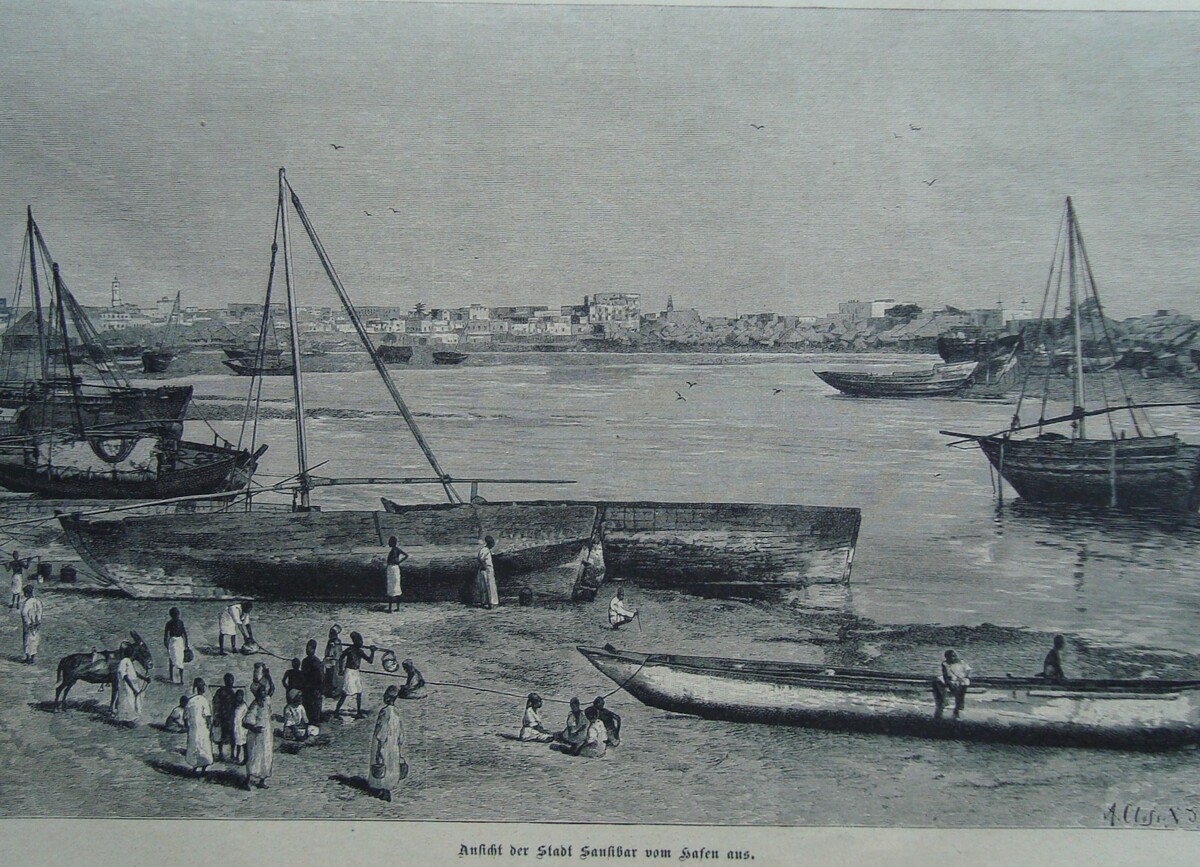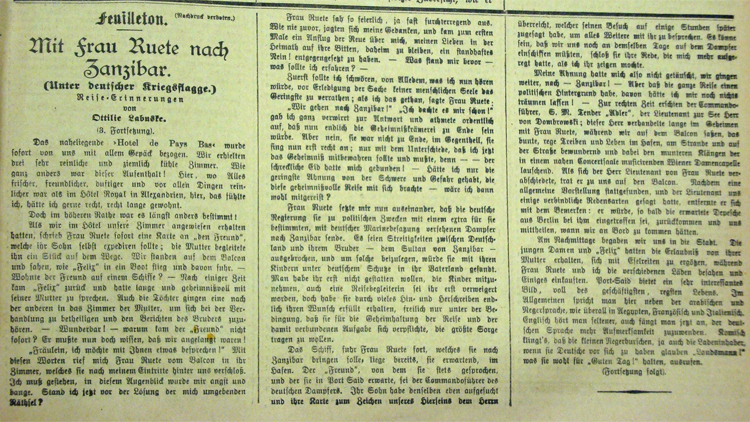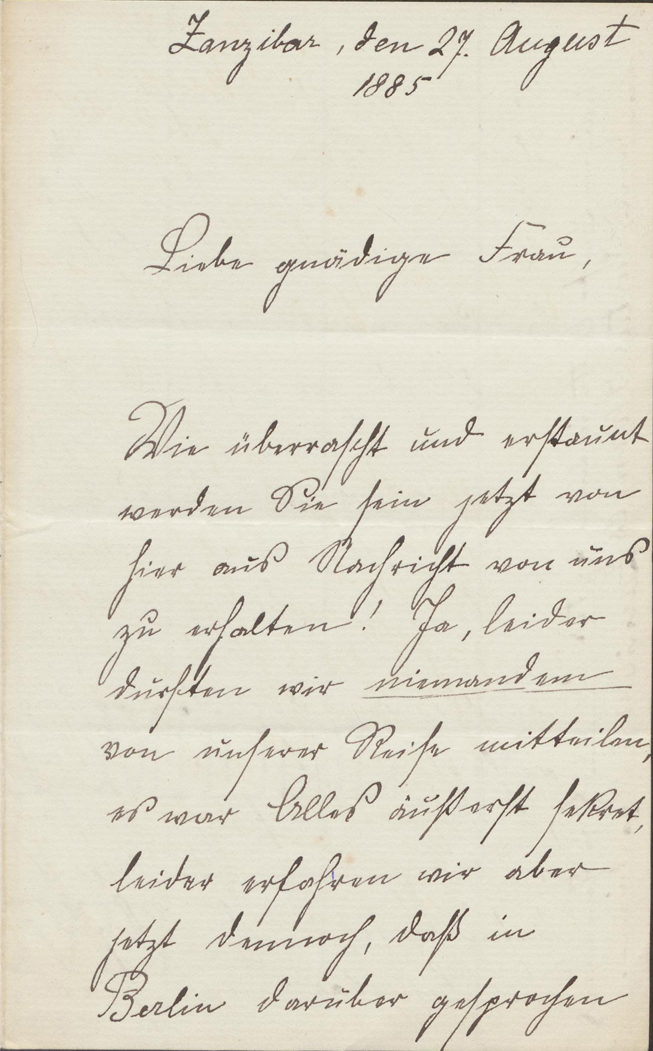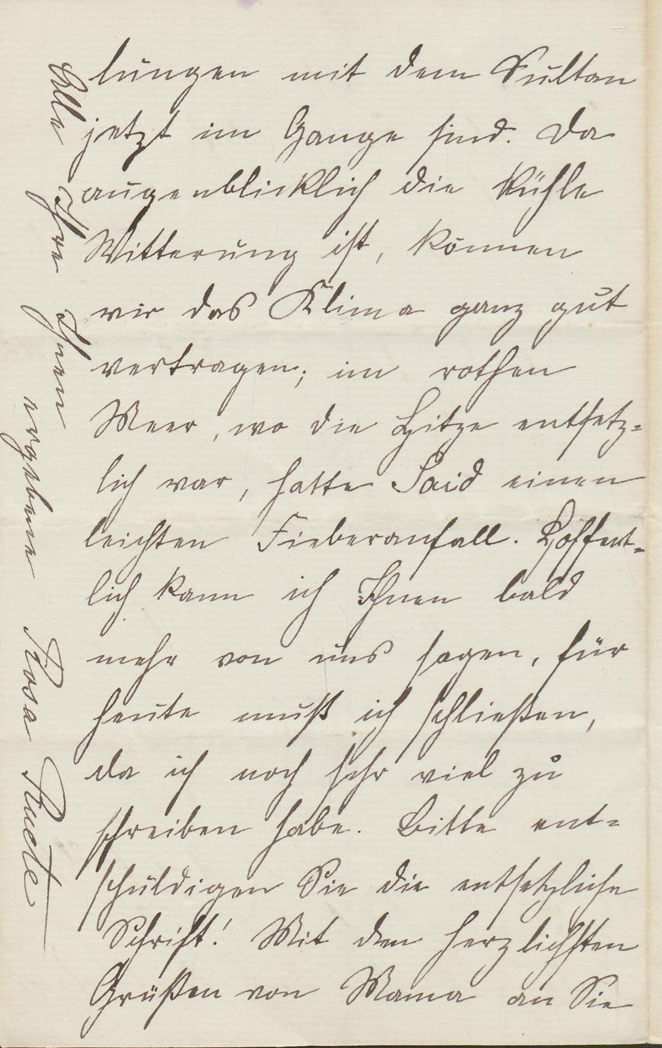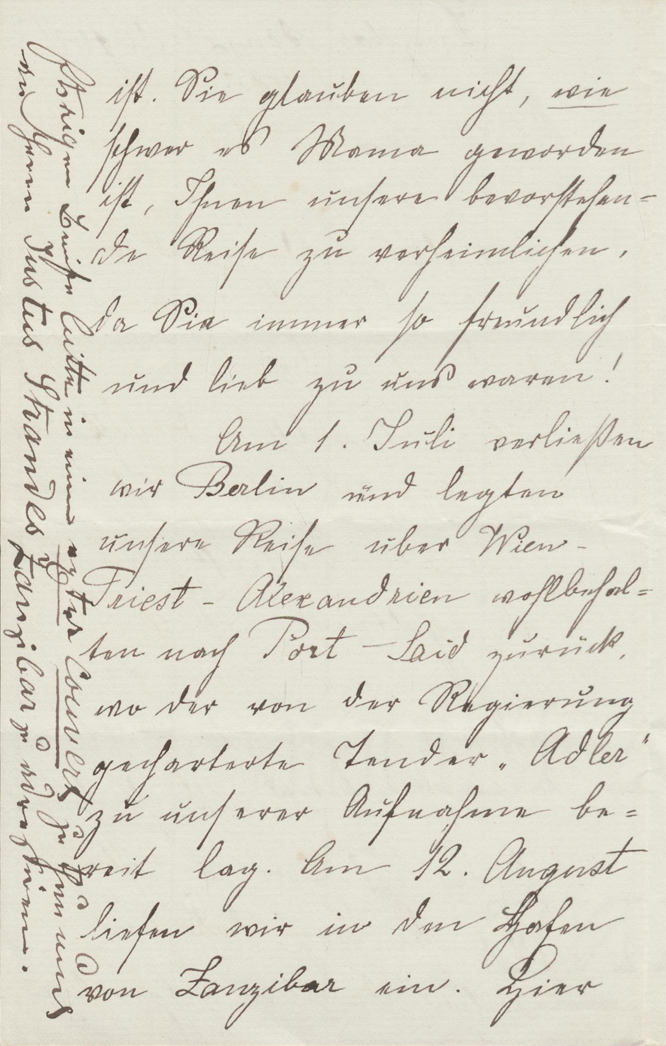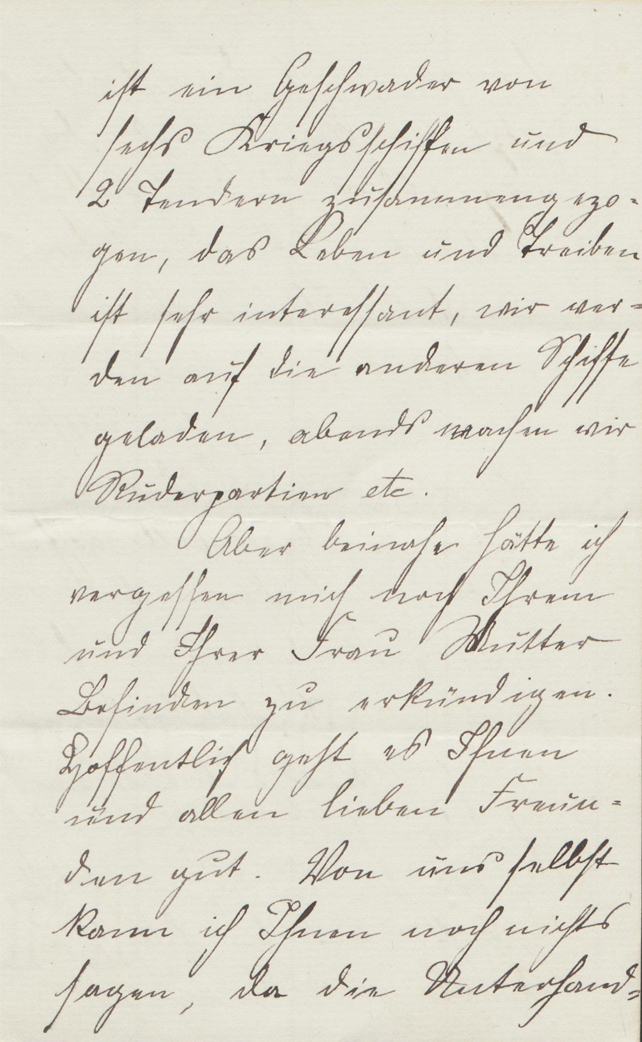In the same year that this picture appeared in the illustrated magazine Die Gartenlaube Emily Ruete entered the harbour of Zanzibar Town after a long wait for the German warships that were to accompany her ship, the “Adler.” She described her first impressions on her “Return to My Homeland after Nineteen Years” as follows:
“On the horizon there emerged the forest of masts that was the harbour. [We…] sailed […] close to the shore, past magnificent groves of palms with small negro villages scattered throughout. […] The impression that Zanzibar Town made on me this time from the sea was the same as before, if anything it was a little friendlier; many new houses have sprung up and the soaring lighthouse with its electric light in front of the palace looks very grand […]” (Memoiren einer arabischen Prinzessin, vol. 2, pp. 167 and 173).
The title of this apparently ethnographic article – an article which emphasises the possibilities for trade as well as the fertile soil and the size of the region – makes apparent Germany’s real interest in Zanzibar in early 1885.
Call number: Berlin State Library, 4° Ac 7218
“‘Miss Labuske, I’d like to discuss something with you!’ With these words Frau Ruete called me from the balcony into her room, locking the door behind us after I had entered. I must confess that at that moment I was overcome with fear. Was I now on the verge of unravelling the mystery that was surrounding me? [...] I first had to swear that I would not divulge to a single soul even one word of what I was about to hear before the matter had been resolved; when I had done this Frau Ruete said: ‘We’re going to Zanzibar!’ [...]” (“Mit Frau Ruete nach Zanzibar”, 3rd instalment, p. 1).
Ottilie Labuske published her “Reise-Erinnerungen” [“Travel Reminiscences”] in instalments almost a year after she had travelled secretly to Zanzibar “under the German flag” in 1885, as the travel companion of the Ruete family. Because Emily Ruete and her claims to her inheritance played a central role in German plans for East Africa the German Government wanted her journey to Zanzibar to go unnoticed so that she would not be stopped by the British, who enjoyed a good relationship with Sultan Bargasch and had their own interests in the region. This journey and its consequences – for Emily Ruete it ended with her return to Germany without having achieved her own goals – are also described both in the memoirs and in the “Postscript to My Memoirs.”
Call number: Berlin State Library, Londoner Bestand F 427
Opening lines: “My dear Madam,
How amazed and astounded you will be to receive this news of us from here! Yes, alas we were not permitted to tell anyone of our journey, it was all utterly secret, but alas we now find that there is talk of it in Berlin […].”
A letter from Emily Ruete’s youngest daughter to a member of the Ebers family (Georg Ebers (1837–1898) was an Egyptologist). In 1885 Rosa Ruete travelled to Zanzibar “under the German flag” with her mother, siblings and the family’s travel companion Ottilie Labuske. Emily Ruete’s personal aim was to claim her share of the inheritance left by her deceased family members in Zanzibar and to be reconciled with her brother Bargasch, Sultan of Zanzibar. Only permitted to embark on this journey with the German fleet because her presence also served German interests, she was ultimately used as a trump card in negotiations with the sultan. Her memoirs narrate this episode in more detail.
Call number: Berlin State Library, Manuscript Section, Nachl. Ebers, K 22b
